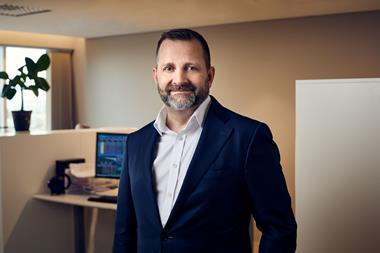Seeking out ways of doing things more efficiently is a key part of successful investment. Often with this in mind, some pension funds have spun off their asset management operations in order to gain economies of scale. By managing the assets of other funds as well as their own, the overall cost of transactions falls significantly.
Hans Braker, a Dutch independent consultant currently working for Aon, says that, in the Netherlands at least, there are a few pension funds broadening their scope and offering multi-management services to new clients. Mn Services and TKP are examples of this, he says.
Once they become stand-alone asset management firms these operators have good competitive advantages. “In these examples where we see firms who have a very good knowledge of the pensions industry, they have very good prospects,” says Braker. “What we have seen is some pension funds becoming very disappointed with asset managers. On the other hand, these firms have quite a good track record.”
Mn Services was spun off from Dutch pension fund PMT and is now an independent investment manager and pension administration service provider. “We do not offer multi-manager services as such but we invest on behalf of our clients in accordance with a flexible multi-manager concept,” says Bernard van de Ven, director sales and marketing at Mn Services Investment Management. “The main reason for us to offer multi-manager services is that we are convinced that only by selecting the best managers worldwide, we can add alpha for our investors and by only using internal managers we will not be able to justify this claim.”
These days, Avadis Vorsorge AG in Switzerland offers the classical multi-manager platform to a variety of clients, says Daniel Dubach, chief investment officer. He notes that 10 years ago, the asset management operation started out as part of the ABB Pensionskasse, managing investments for the pension fund of ABB in Switzerland. Step by step, the platform has been opened up, and for the last six years, Avadis has been an open asset manager with many different clients. “From that one funding partner we expanded the business to other pension funds,” says Dubach.
When competing for pension fund business, it is a real plus point that Avadis started out as a pension fund insider. “That is certainly one of the advantages that we talk about, we understand out clients,” says Dubach. And this is illustrated by the fact that Avadis does not only manage its clients’ assets, but also deals with the technical side of the pensions business. “We really understand what pension funds need,” he says. “That is a big advantage we have over the banks. We are not product driven, we are client driven.”
Typically, banks are on the look out for what type of investment might become big over the next few years, for example, biotech, says Dubach. Then the bank makes its seed investment in this, and then tries to sell the product on. “That’s not what we do,” he says. Avadis begins by having discussions with its pension funds, and listening to their needs. For example, a fund may need to increase diversification. Then Avadis would look at the options for achieving this. It might come to the conclusion that hedge funds would serve the purpose, he says. But the needs of the client come first.
More often than not, says Dubach, the latest products that the banks are keen to sell do not fit with pension fund strategy. “The sales people of the banks often do not understand the process,” he says. “The asset liability study, including the passive side of the business. That has to be taken into account.”
One of the main impetuses behind the move to spin off the asset management arm was the desire to save money by creating a larger pool of assets, says Dubach. Instead of not having the critical volume, it was decided to join up with other pension funds and pool assets to create economies of scale.
The ABB pension fund in Switzerland has certainly profited from the activities of Avadis over the last 10 years in terms of the reduced asset management fees it has had to pay, and the packages of services that the provider has been able to combine.
Also, when ABB underwent a restructuring, there were advantages in having Avadis on hand. As part of any restructuring, there is inevitably a rebalancing in the asset base involved. Buying and selling shares in order to effect these rebalances would have been far more costly had ABB not had the asset management pool of Avadis for them to be absorbed into. “It is much more cost-efficient, not only during restructuring, but for the day-to-day business,” says Dubach.
Siemens Financial Services’ affiliated company Innovest began life providing multi-manager services for the Siemens pension fund in Austria. But it now acts more widely as a multi-manager for other clients, too. “Our biggest client is the Siemens pension fund in Austria,” says Johann Maurer, managing director of Innovest in Austria. The second important client is Siemens AG Austria.
Innovest started in 1998, but its client base has now diversified away from Siemens. “Now the two big clients are only 30% of our assets,” says Maurer. The clients are now not only pension funds.
Starting life as an investment firm associated with the pension funds of one company has had its advantages for Innovest. “The advantage we had is that we had seed money,” he says. “We could set up the basic offering of multi-management services, and could show our track record over two or three years.”
This would be one of the main stumbling blocks for firms attempting to set up from scratch. With no track record, it would be very hard for a firm to convince any potential clients to entrust it with their assets.
And already, the fact that Innovest has a track record is serving the firm well. In Germany, the multi-manager segment of the market is just beginning, says Reiner Beutler, head of institutional sales, based with Siemens Financial Services in Germany. There are four or five competitors, he says. “As far as we can see, we seem to have an advantage compared to them, as we have a track record that Innovest developed over the last five years,” he notes.
Most of the multi-managers to emerge are not developing out of pension fund-affiliated investment operations, but are coming from the banks and consultants.
Multi-management services are particularly in demand in Austria by pension funds because the funds are much smaller than those in the UK and US, says Maurer. This means that it is very hard for them to spread their assets across a wide enough variety of investment classes using individual mandates. “These funds are forced to use multi-manager strategies to get diversification at the mandate level,” he says.
“Innovest is now able to offer, using the umbrella fund structure, a wide array of funds of funds”, says Beutler. The firm has 14 base funds which are split up by asset class and regionally.
“These funds are completely separated,” says Beutler. “If a pension fund comes in and would like to get a target of 20:80 split, 50% US dollar hedged in euros, then we can easily set up a fund of funds structure and we put an overlay on the fund. It’s very flexible.”
In Germany, so far, Innovest’s experience is that investors want to diversify among multi-managers, too. “Typically a client would use two or three, says Beutler, which leaves Innovest managing a third or a half of the total portfolio.”












